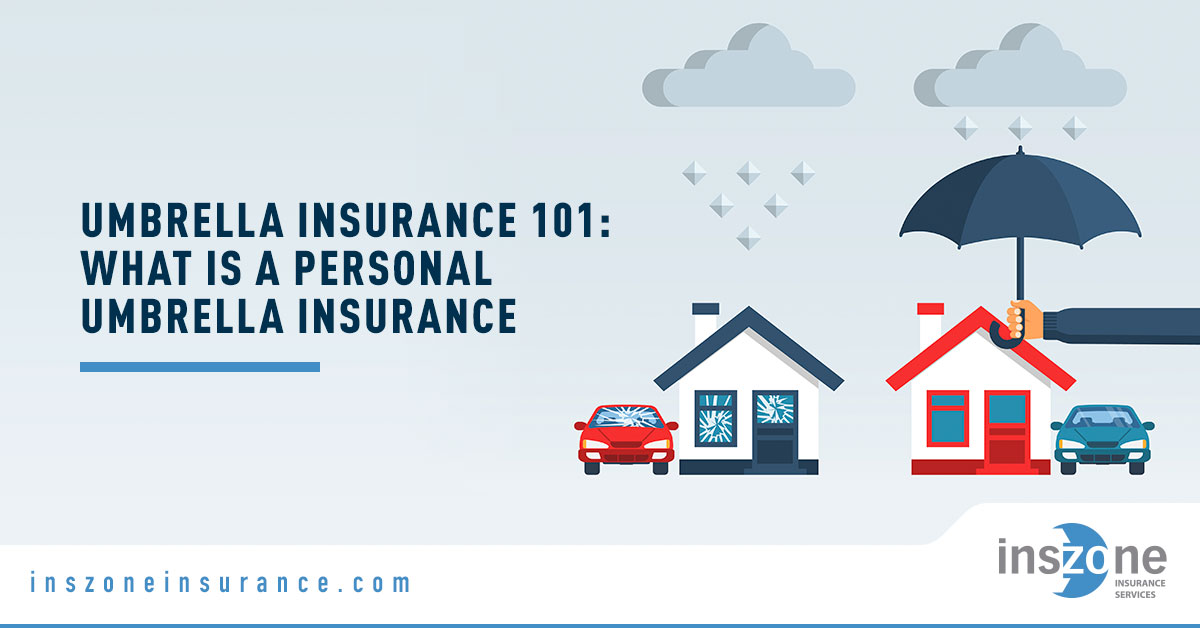Legal expenses and liability awards have climbed in recent years. A single lawsuit can threaten savings, home equity, and future income. A Personal Umbrella Insurance policy adds an extra layer of liability protection above your home, auto, and other primary policies—often for a relatively low annual cost.
What Is a Personal Umbrella Policy?
A personal umbrella policy provides additional liability coverage that sits on top of your underlying policies (home, renters, condo, auto, boat). It can also fill certain gaps—covering claims like libel or slander that many base policies exclude.
What Does a Personal Umbrella Typically Cover?
- Bodily injury to others (e.g., a serious auto crash you cause).
- Property damage to others (e.g., you or a family member destroys someone’s property).
- Personal/advertising injury (e.g., certain defamation or slander claims).
- Landlord liability (if you own rental property—subject to policy terms).
- Legal defense costs for covered claims, which can be significant.
What Doesn’t It Cover?
Umbrella insurance is broad, but not unlimited. Common exclusions include:
- Your own injuries or property damage (it’s liability protection for others’ losses).
- Business activities (consider a commercial umbrella for business risks).
- Intentional or criminal acts.
- Contractual liability you’ve assumed in an agreement.
When an umbrella covers a claim that isn’t covered by an underlying policy (for example, certain defamation claims), a small “self-insured retention” (SIR) may apply before the umbrella responds.

Umbrella vs. Excess Liability: What’s the Difference?
Short answer: an excess policy usually just raises the limits of your underlying coverage; an umbrella typically raises limits and may add some coverages not found in your base policy (policy forms vary by insurer).
| Feature | Umbrella | Excess Liability |
|---|---|---|
| Raises limits above home/auto | Yes | Yes |
| May add extra coverages (e.g., certain personal injury claims) | Often | Generally no (follow-form) |
| Self-insured retention (when no underlying policy applies) | Possible | Not typical |
Who Should Consider Umbrella Coverage?
Umbrella coverage is valuable if a large judgment could jeopardize your assets or future earnings. Many households benefit, especially those who:
- Own a home, rental, pool, trampoline, boat, or dog.
- Have significant savings/investments—or high future income potential.
- Have teen drivers in the household (a higher-risk group).
- Are public-facing (greater reputational risk).
How Does It Apply to My Family?
Most personal umbrella policies extend to spouses and resident relatives/dependents listed on the policy, subject to terms and any separate policies in their own names. Check your insurer’s definitions and endorsements.
How Much Does It Cost in 2025?
For many households, a $1 million umbrella policy often runs roughly $150–$300 per year, with additional millions costing incrementally more (varies by state, risk profile, and insurer).
What affects premium? Limit chosen; number of vehicles and properties; drivers (e.g., violations or youthful operators); claims history; and location/legal climate.
What Underlying Limits Do Insurers Require?
To qualify, insurers typically require higher liability limits on your base policies (so the umbrella sits above a strong floor). Example carrier minimums:
| Policy | Common Minimums (Examples) | Source |
|---|---|---|
| Auto liability | $250k/$500k/$100k or $300k/$300k/$100k | GEICO umbrella requirements (example) |
| Home/Renters liability | $300,000 | GEICO umbrella requirements (example) |
| Boat (if scheduled) | $100,000–$300,000 depending on size/HP | GEICO umbrella requirements (example) |
Minimums vary by carrier; your agent can confirm exact thresholds.
What 2024–2025 Trends Affect the Umbrella Market?
- “Nuclear verdicts”—jury awards over $10M—have risen over the past decade, intensifying liability risk and defense costs.
- Social inflation (non-economic factors driving claim severity) continues to pressure liability lines in the U.S., per reinsurance research.
- Some reinsurers and carriers cite elevated damage inflation and legal system pressures when explaining pricing or capacity changes.
For consumers, these forces are a reminder to review liability limits, especially if assets, earnings, or exposures (e.g., teen drivers, rentals) have grown since your last renewal.

Can Bundling an Umbrella Save Money?
Many insurers offer multi-policy savings for placing home, auto, and umbrella together—plus simpler claims coordination. Discount size and eligibility vary by state and carrier.
How Do I Choose the Right Umbrella Limit?
- Tally assets + future earnings. Include home equity, savings/investments, and projected income.
- Map risk exposures. Teen drivers, rentals, pools, boats, frequent entertaining, or public profile may argue for higher limits.
- Start at $1M; consider $2M–$5M+ as assets and exposures rise (some carriers offer up to $10M).
- Verify underlying limits meet your insurer’s umbrella requirements (see table above).
FAQs
Is umbrella insurance required by law? No. But landlords, lenders, or counterparties in contracts may require higher liability limits.
Does umbrella cover me worldwide? Many policies include worldwide liability (limitations/exclusions apply). Review your policy form.
Do I need to keep my auto/home with the same insurer? Often yes for eligibility/discounts—but stand-alone umbrellas exist through some markets; an independent agent can help.
Will it cover business activities? Personal umbrellas generally exclude business risks—ask about a Commercial Umbrella if you operate a business or have significant business exposures.
Ready to Protect Your Assets?
Umbrella insurance is a cost-effective way to shield your savings and future earnings from large liability claims. If you’re unsure how much coverage you need, our team can help you evaluate assets, risks, and current policies to recommend the right limit.
Talk to an Inszone Insurance professional: (833) 819-5009 · [email protected]
Sources and Further Reading
- Insurance Information Institute (III): What is an umbrella policy?
- NAIC: What’s an Umbrella Policy?
- NHTSA: Teen Driving Safety | CDC: Teen Driver Risk Factors (Aug 2025)
- Institute for Legal Reform: Nuclear Verdicts (2024)
- Swiss Re Institute: Social Inflation Index (sigma 4/2024)
- III: Should I purchase an umbrella liability policy?
- Northwest Insurance Council: Umbrella Policy Coverage & Typical Costs





